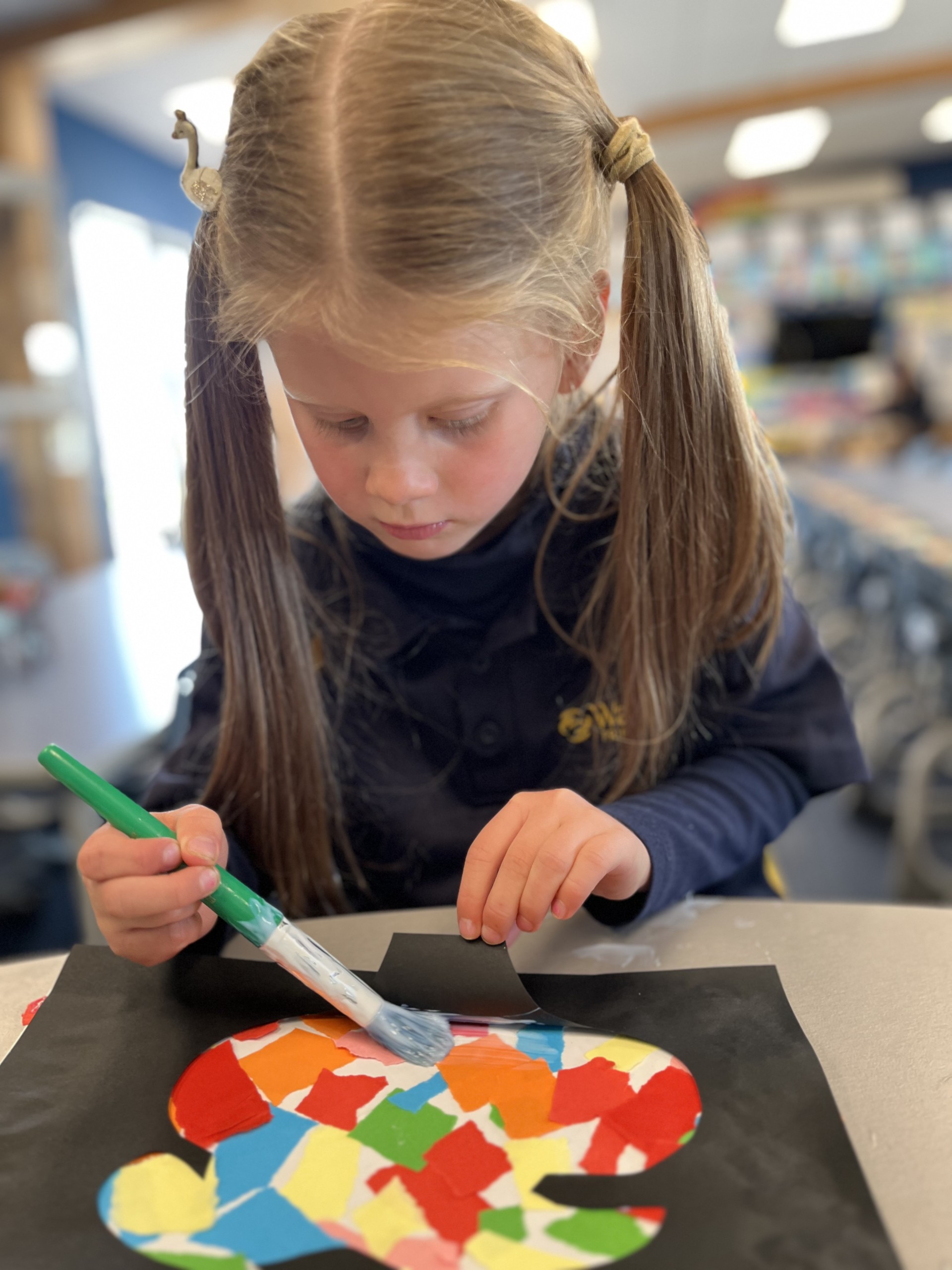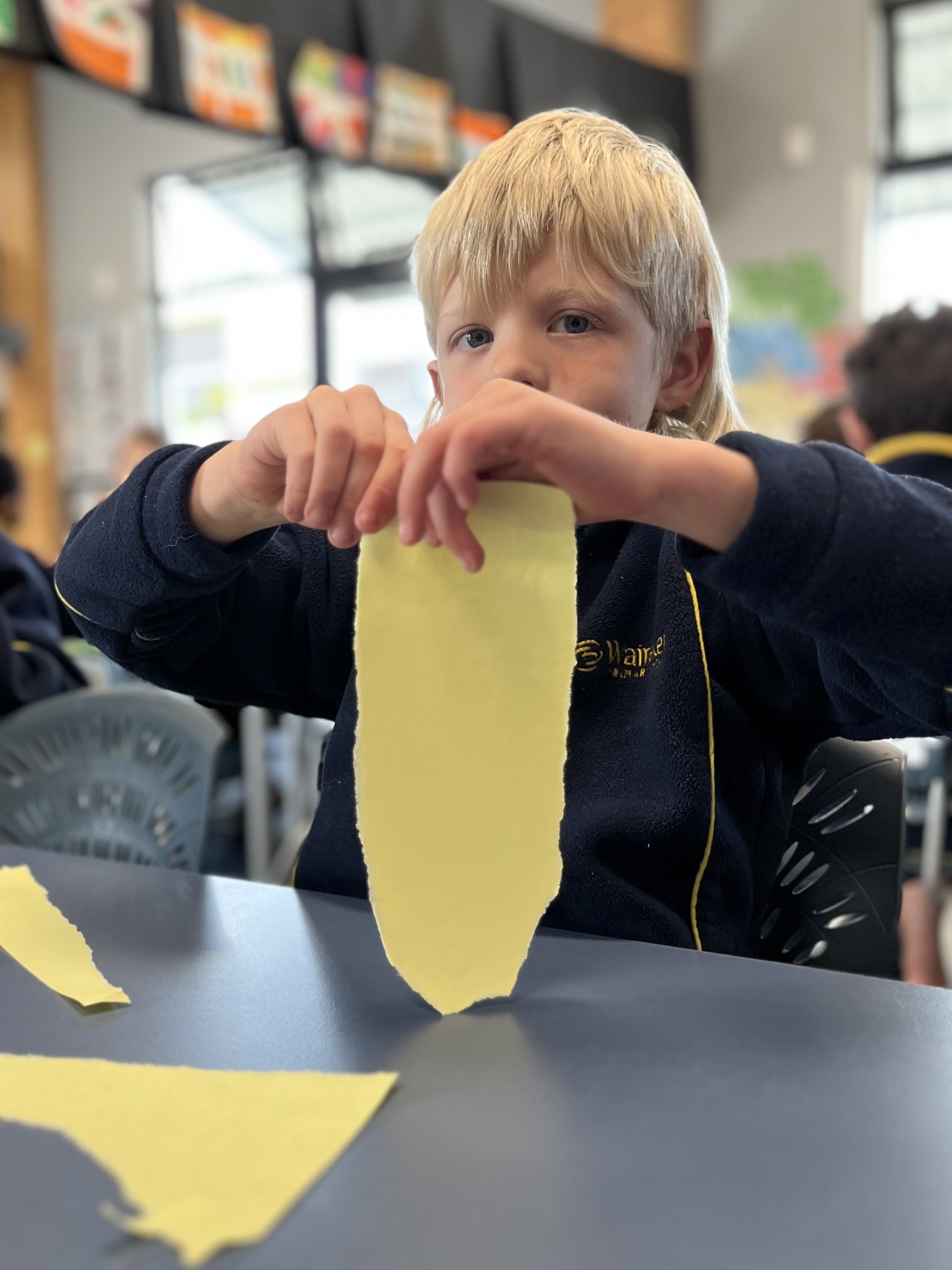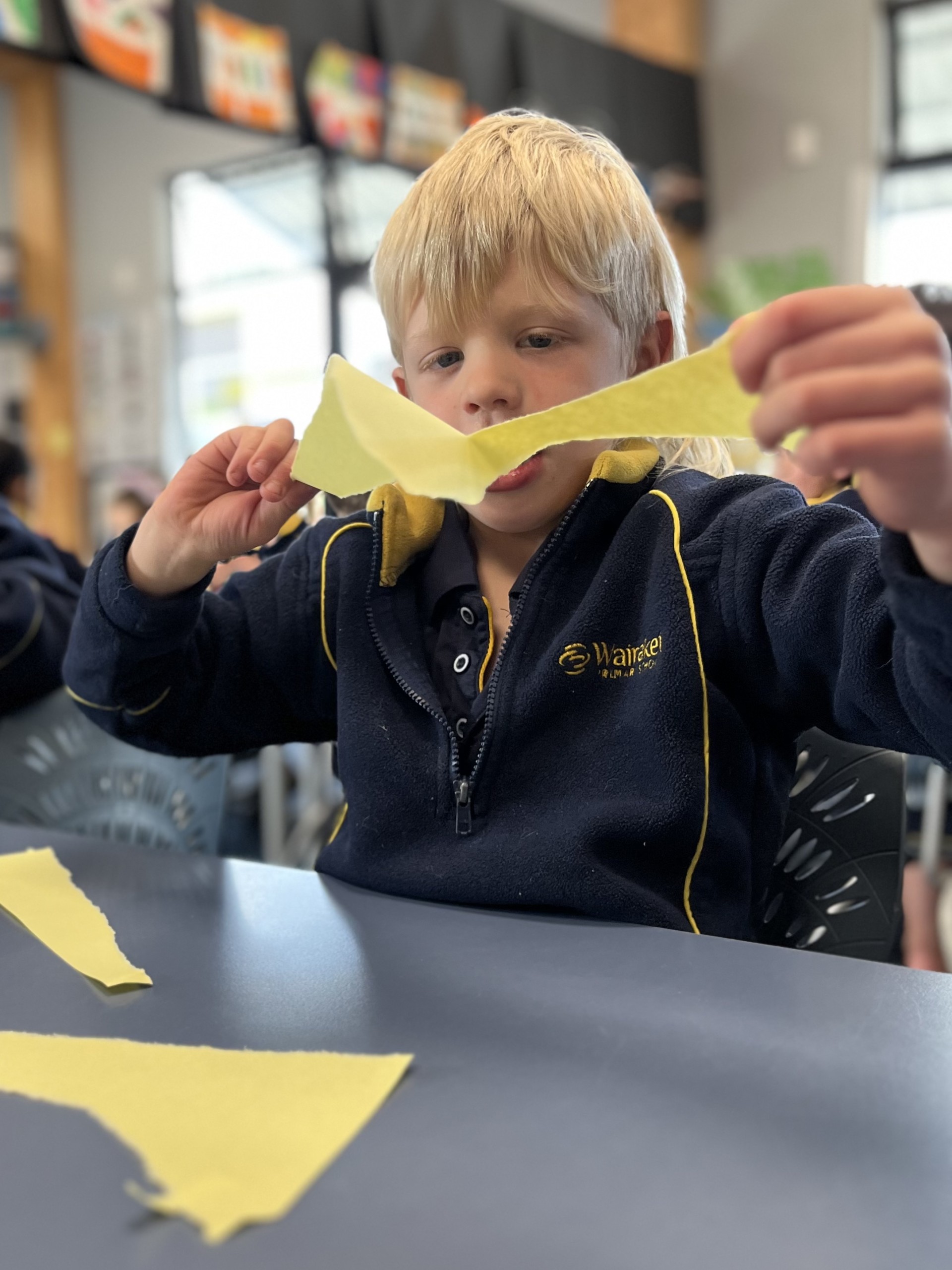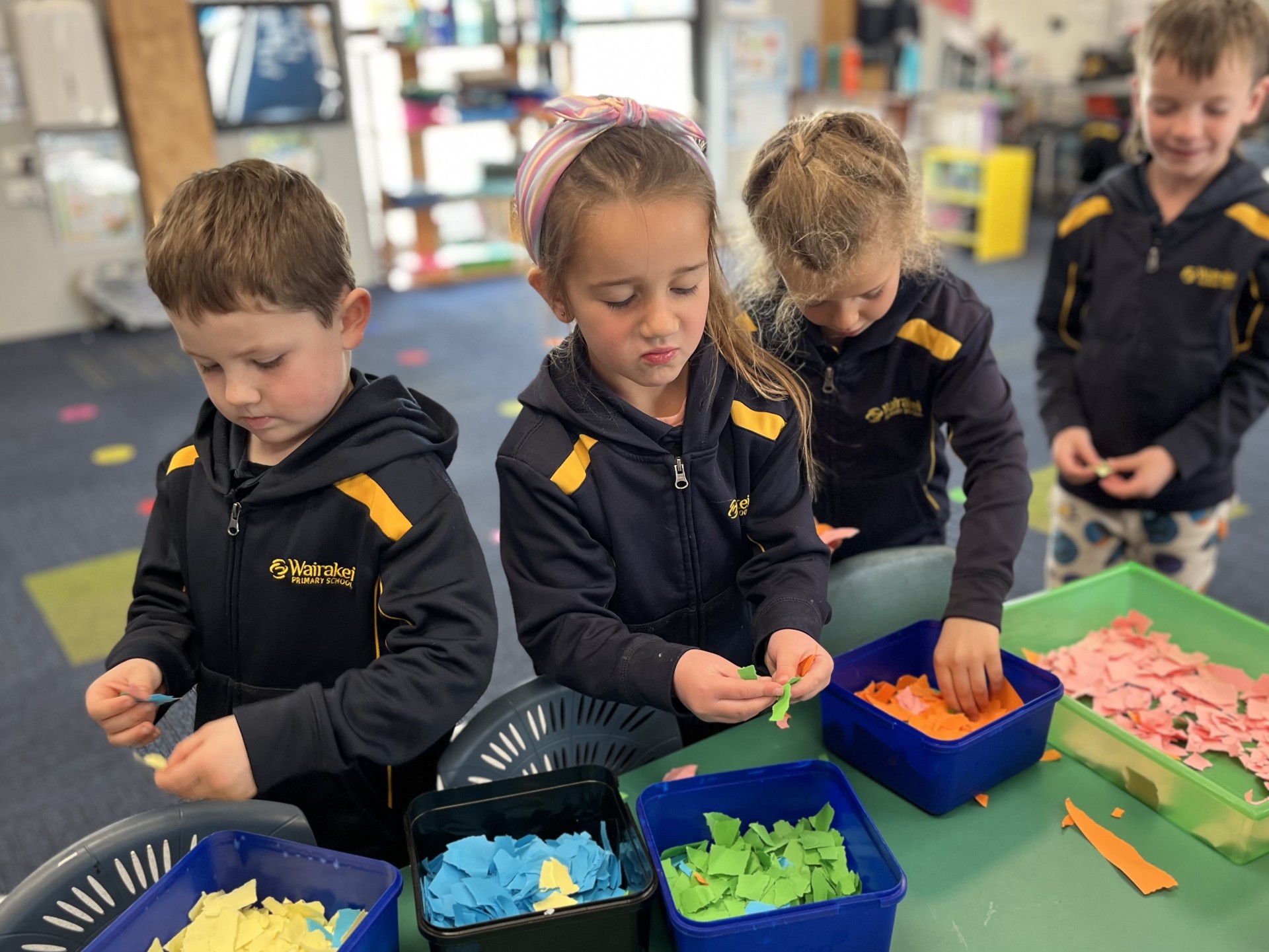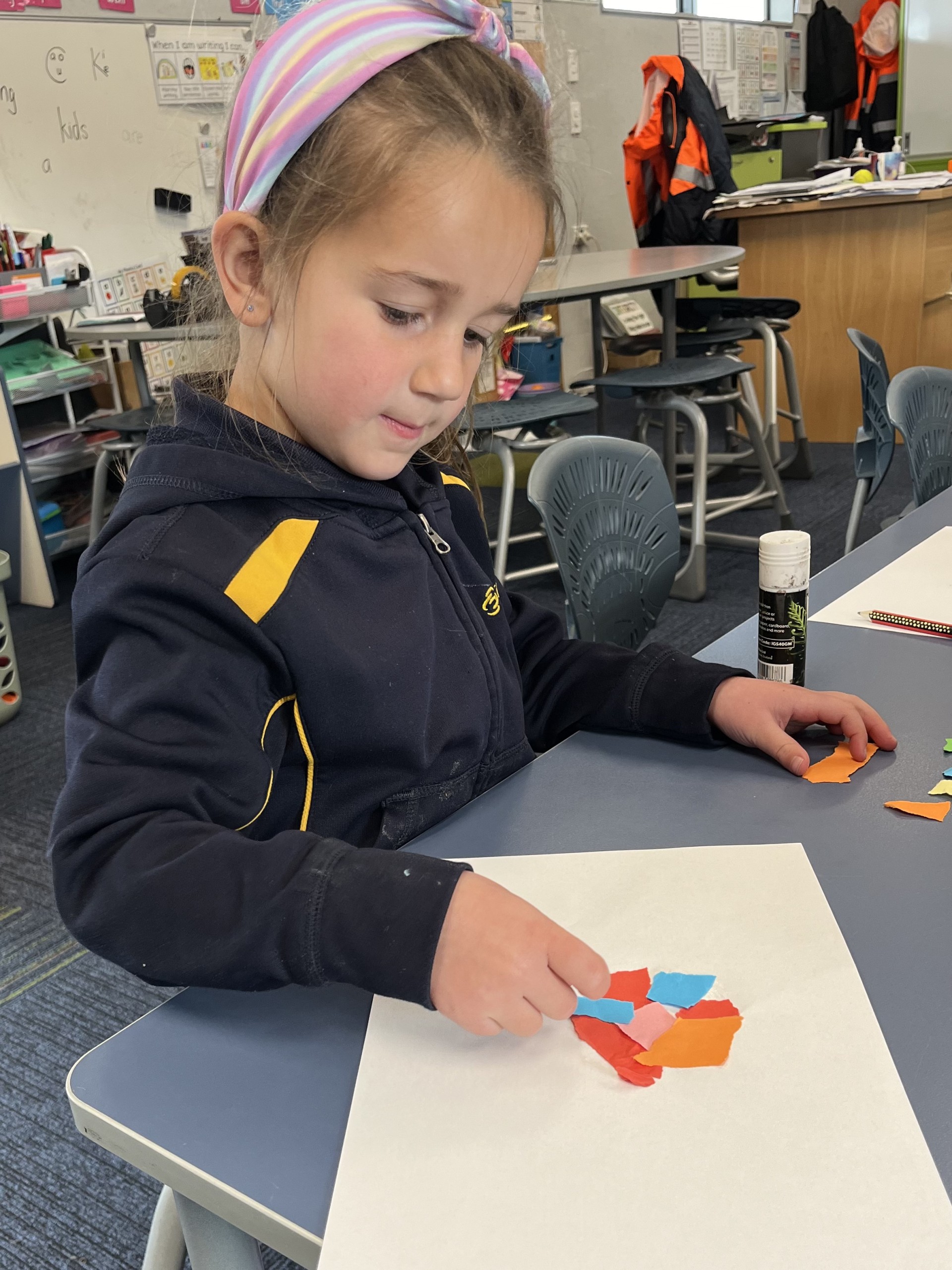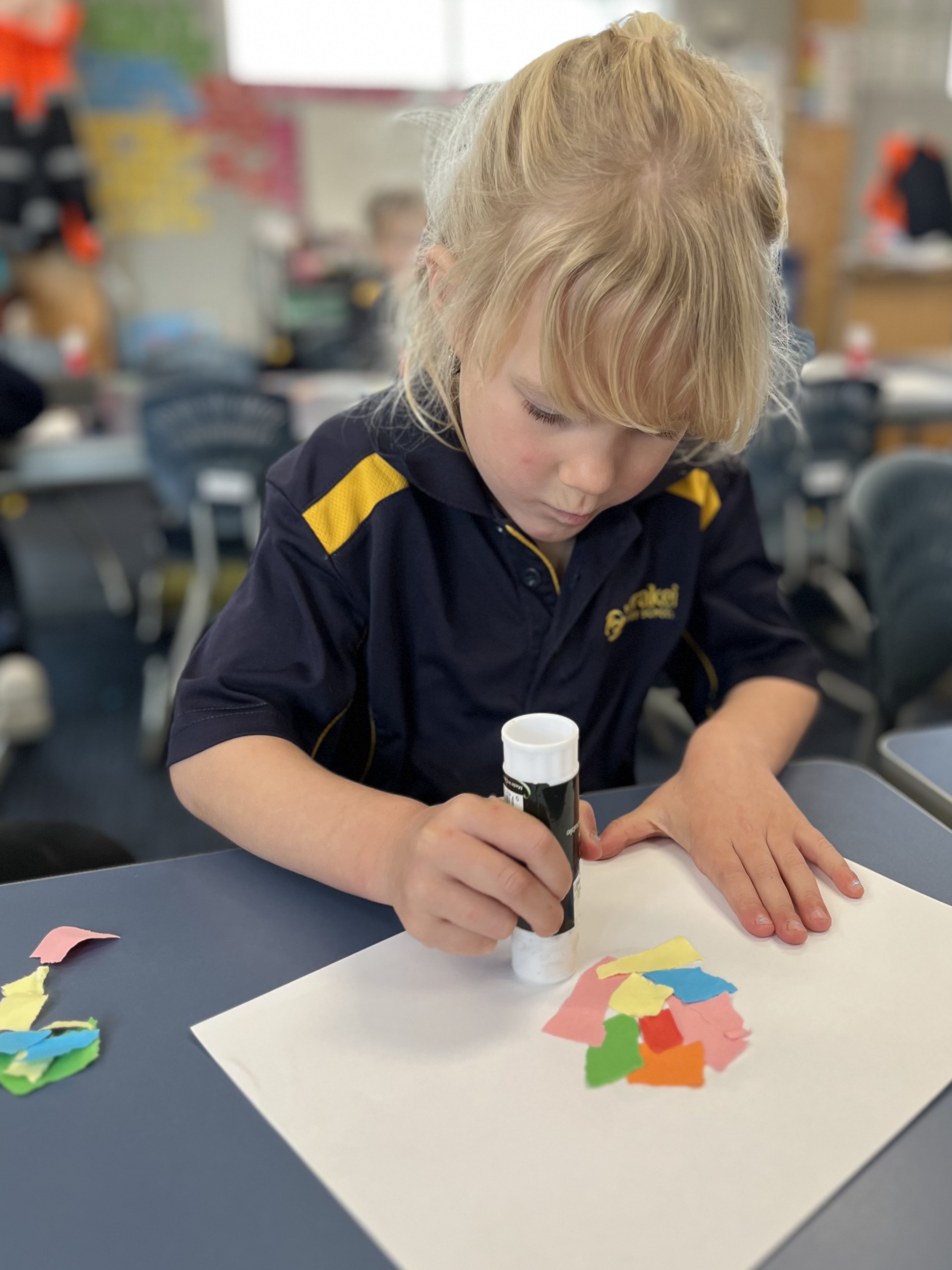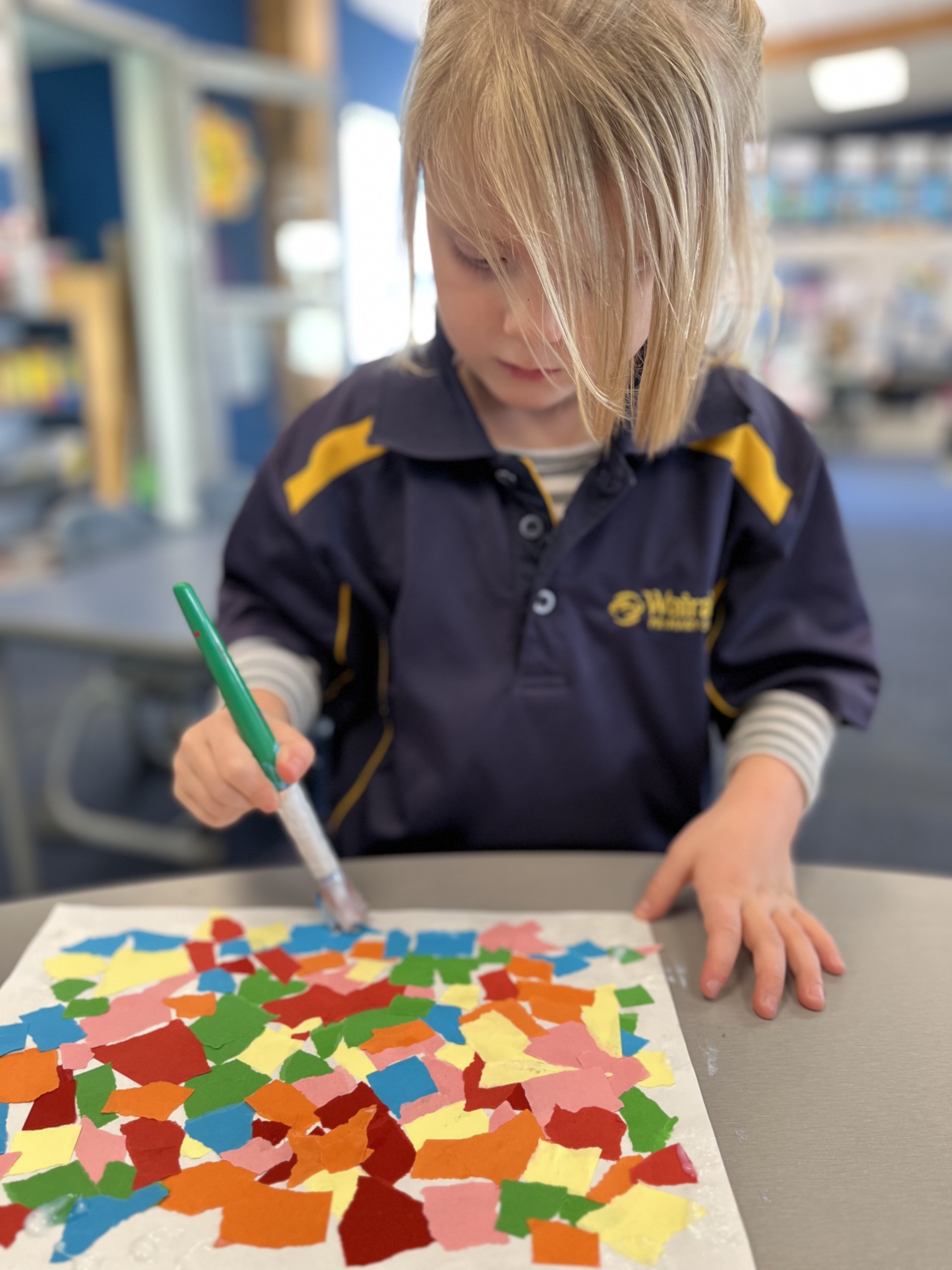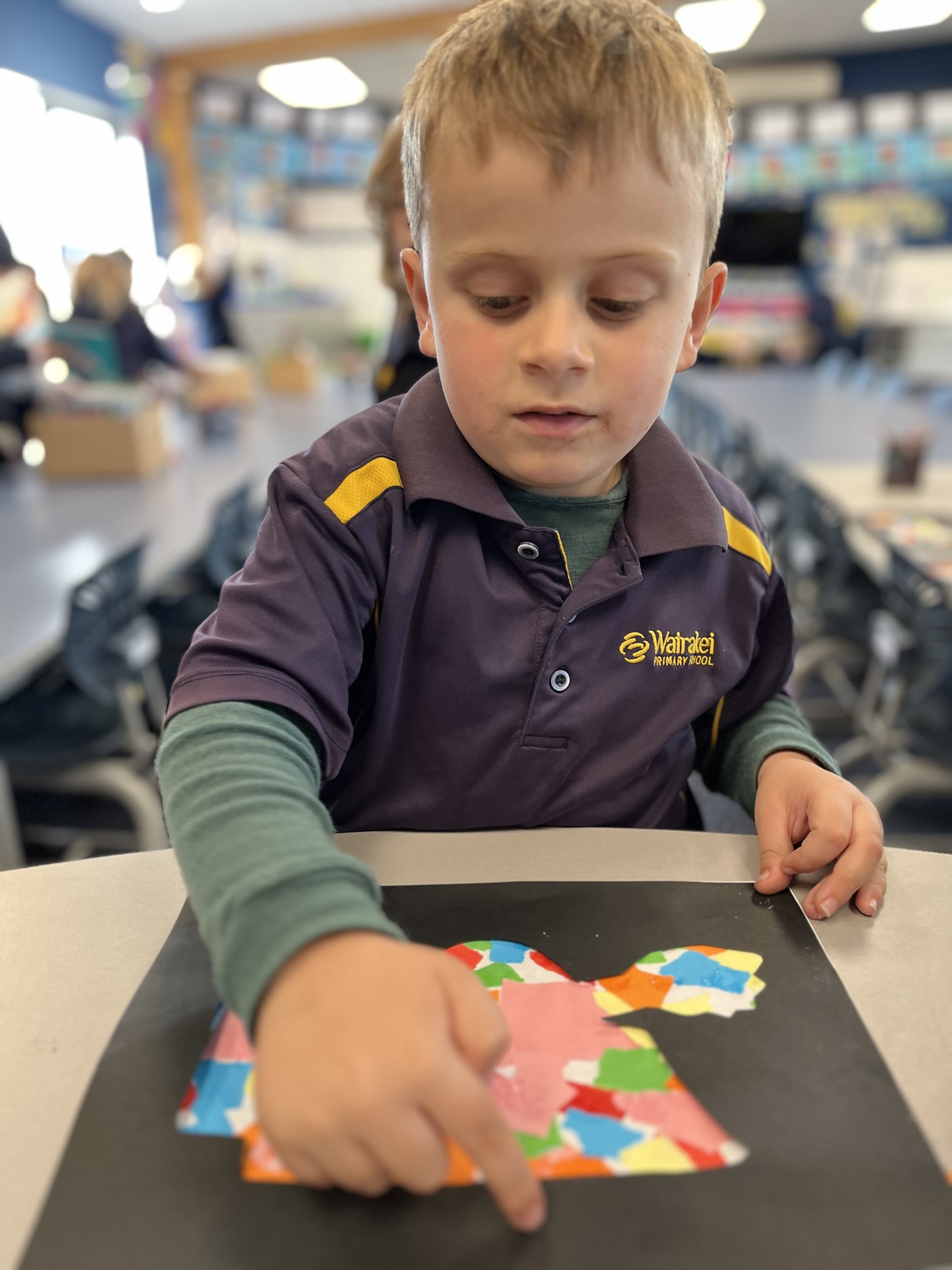1. Fine Motor Skills Development
One of the most immediate benefits was the development of fine motor skills. By ripping sheets of paper into smaller pieces, the students used the small muscles in their hands and fingers, which are crucial for tasks like writing, cutting, and tying shoelaces. Ripping paper requires control and coordination, and the more they practiced, the more confident and precise their movements became.
2. Linking Home and School
For students who live on farms, creating collage farm vehicles in the classroom connects directly to their home experiences, making the task relatable. As they tear and assemble pieces of paper to represent tractors, trucks, and other vehicles they see daily, they draw from their real-life knowledge of how these machines work and their importance on the farm.
I use a quad bike on the farm everyday with my dad.
The farm bike is to drive through the mud.
You need a farm bike to round up the sheep.
I sometimes drive with my Dad to see the cows on the farm.
We use the bike to shift the cows when they don’t have much water. We have long grass.
3. Building Social Skills: Sharing, Turn-Taking and Empathy
Working together on a shared artwork encouraged students to practice essential social skills like turn-taking, collaboration, and sharing. As they selected different coloured paper, they had to wait for their turn and take only small amounts to ensure there was enough for everyone.
4. Following a Process
This art project required everyone to follow a series of steps, from ripping the paper to gluing the pieces in place. Learning to follow instructions is an essential skill. Mrs Berger’s guidance in breaking down the task into smaller steps taught the students how to approach larger projects methodically, to follow a structured process.
5. Sensory Exploration
Ripping paper is a tactile experience that engages the senses. The different colors, and sizes of the paper pieces allowed the students to explore the world through touch and sight. This sensory engagement is crucial for early development, helping to connect abstract concepts like color and shape to real-world objects.
6. Building Confidence
Completing a project gives students a sense of accomplishment. As they saw their farm vehicle come to life, the students felt pride in their work.
Conclusion
This collage farm vehicle project was more than an art activity—it was a multifaceted learning experience that touched on key areas of the New Zealand Curriculum. From fostering creativity and motor skills to developing social competencies and problem-solving abilities while expressing themselves through art
